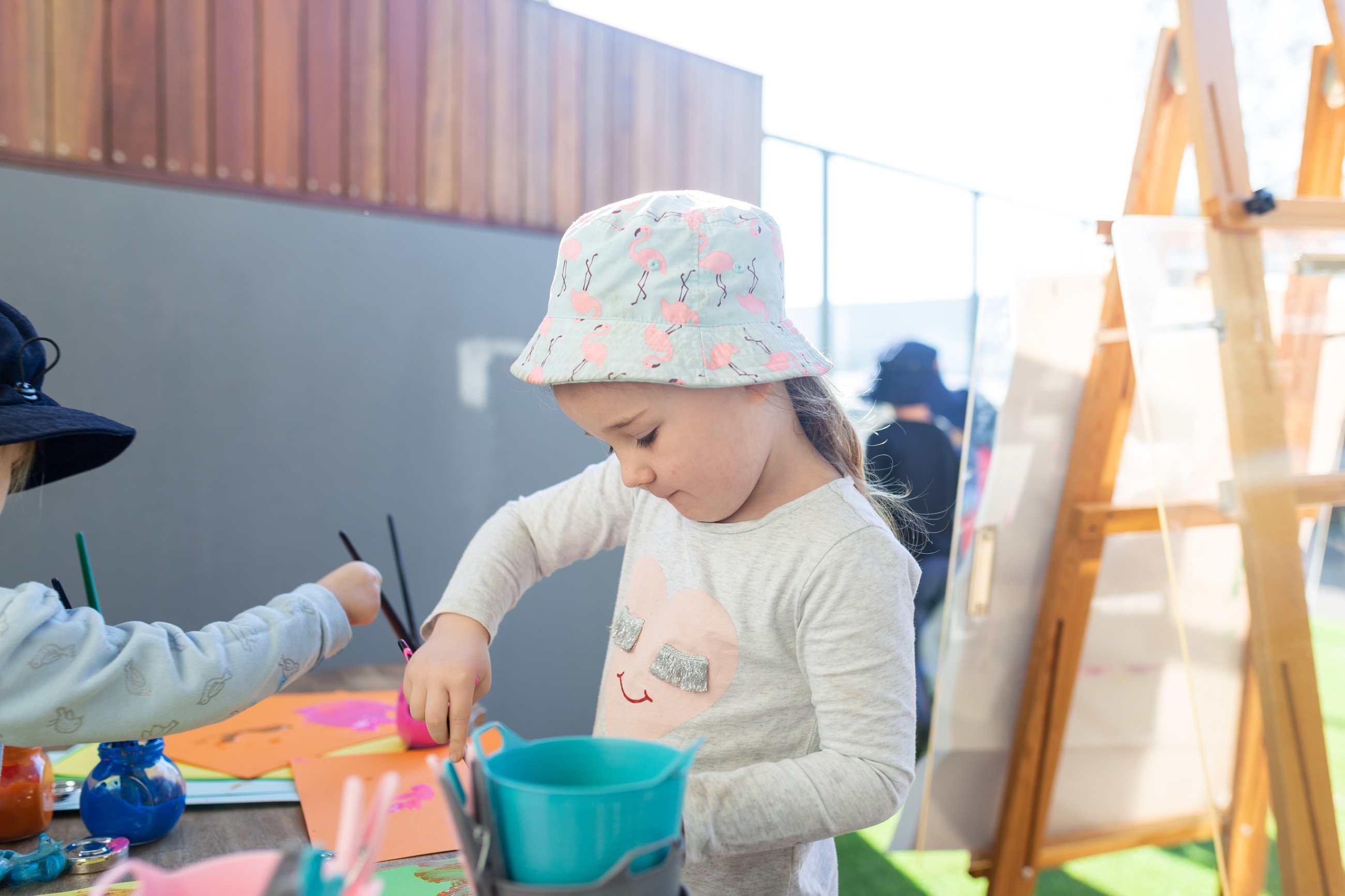
Children have a natural desire to push boundaries and defy limits. It’s how they learn to negotiate risk, test their own capabilities, and build their sense of identity. The early years are a crucial time for nurturing independence in children. As they grow from babies into capable young people, our children are building all the vital skills, confidence and resilience they need to go forth and conquer the big world around them.
There are infinite opportunities to encourage and nurture your child’s independence at any age, and it’s as simple as listening to them and providing opportunities for them to make choices for themselves.
Babies
Nurturing independence in babies is about tuning into their body language and cues. For a new parent, it can take a little bit of time to learn and discover your child’s unique communication style. However, once you learn how to read their verbal, physical and emotional cues, you will find that your baby is quite a capable little communicator.
- Learn your baby’s unique communication style and listen to their cues on when they want to be fed, changed, held and played with
- Talk to your baby regularly about what you are doing. Even if they can’t talk back, babies understand a surprising amount of what we say and will respond. By talking to your child from an early age, you are also helping to build their vocabulary.
- Observe your baby’s preferences and body language during care routines
- Learn to read your baby’s body language to determine what they do and do not enjoy, by observing their facial expressions and emotional cues
Toddlers
Toddlers have a deep need and desire to be independent, and this can be a source of frustration. Toddlerhood is the age of “me do”. Your toddler wants to make decisions, do things for themselves, be listened to, and feel a sense of control. This stage of development requires a lot of patience and understanding, often with a lot of frustration for parents as well!
Some opportunities to nurture your toddler’s independence include:
- Providing them with clothing that makes it easier for them to dress themselves. For example, shoes with velcro straps or slip on shoes, and loose fitting t-shirts and jumpers they can pull on over their heads.
- Encourage your toddler to participate in their own self-care and daily routines, such as allowing extra time in the morning for your child to practice putting on their own clothes, brushing their own hair, and packing their own belongings into their bag for the day
- Involve them in household chores. For example, let your toddler help in the kitchen by wiping down the counter, helping wash and prepare vegetables, or stirring cold ingredients together. Trust in their abilities, and understand that things may get messy!
- Trusting their decisions around food choices. Toddlers can begin to show preferences for certain types of foods, and their preferences around when and how much they eat can begin to change. Continue to provide a range of different foods, but understand that this stage is a phase and allow your toddler to make their own decisions around meal times.
Young Children
The age of 3-5 is a crucial time for building independence and a sense of identity in children, as they prepare to take their next big step into starting school.
Some ways to help your child develop independence for school include:
- Giving them responsibilities, such as feeding and caring for pets, watering the garden or setting the table for dinner. Young children thrive on responsibilities!
- Encourage them to help with “adult” routines such as washing and putting away dishes, packing food for their lunchbox, folding the laundry etc.
- Ask your child’s opinion on things. This can be as simple as their favourite colour, how they felt about the events of their day, or whether they prefer Vegemite or peanut butter.
- Encouraging them to talk about and name their feelings, as well as helping them recognise the emotions of others. When something impactful happens in their life, ask “how do you feel about that?” When watching movies and TV shows with your child, ask them to name how the character might be feeling, based on their facial expressions and body language.
- Encouraging them to push their limits and engage in “risky play.” How high can they go on the swing? Can they climb that tree? Through risky play, children learn to test their own boundaries and flirt with uncertainty, which helps develop their confidence.
In short, nurturing independence in our children simply means providing them with space and freedom to make choices, test limits, experience risk, make discoveries, and be involved in decisions that affect them.
Allowing children a sense of agency over their own lives helps to shape the way they view situations and themselves. Our children are citizens of the world today, and deserve to be treated as such. When we trust children, ask for their opinions, and provide them with options, we are helping to mould them into independent and capable young people with all the tools they need to succeed both in school and in life.
